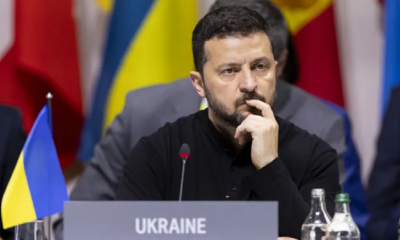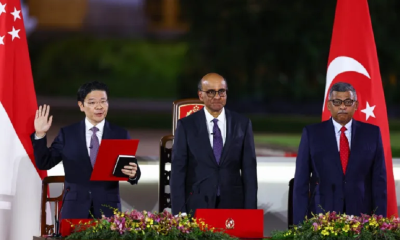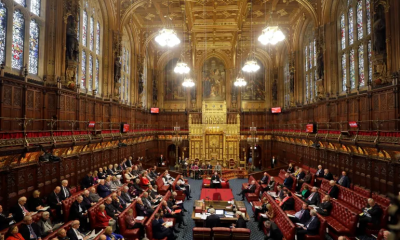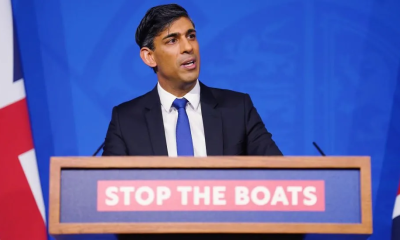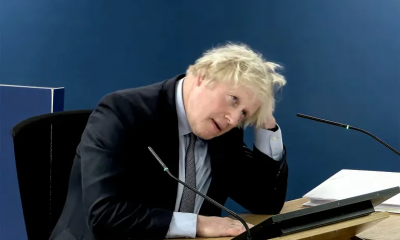Foreign News
Britain’s Conservatives trounced in local elections as Labour makes gains
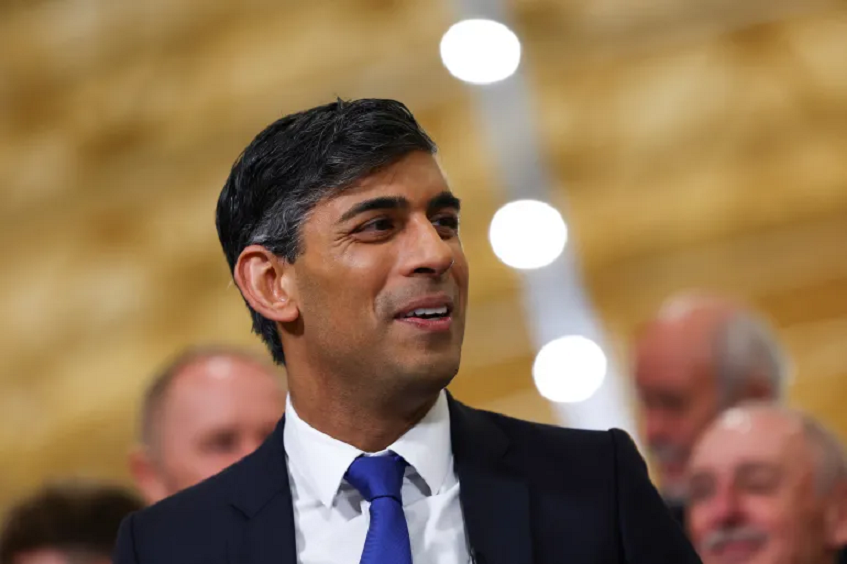
Britain’s ruling Conservative Party has suffered a resounding defeat in local elections, a further sign that it is likely to be removed from power in upcoming general elections.
With nearly all council results in, the Conservatives have lost 473 seats, while the opposition Labour Party has picked up 185, as counting was under way on Saturday for a few more assembly and mayoral polls.
Critically, Labour’s Sadiq Khan won London’s mayoral race, securing a record third term and dealing the Conservatives another damaging defeat.
With the results in from 106 of 107 council elections, the Conservatives lost about half of those it was defending, costing it control of 10 councils.
Its rival Labour Party wrestled control of eight councils, while also winning three newly created mayoral seats, including one in Conservative Prime Minister Rishi Sunak’s own northern English constituency.
Labour also won a by-election for the Blackpool South parliamentary seat, triggered by the resignation of the scandal-plagued Conservative MP Scott Benton.
Labour leader Keir Starmer said the emphatic victories nationwide sent the prime minister a clear message to hold a nationwide vote.
“Voters in Blackpool South have sent a direct message to Rishi Sunak: Make way, let’s have a general election,” said Starmer.
Sunak, whose Tories are down about 20 points in the polls to Labour must order a general election to be held by January 28 next year at the latest.
Labour performed strongly in areas that voted for Britain’s exit from the European Union, such as Hartlepool in the northeast of England, and Thurrock in southeastern England. Labour also seized control of Rushmoor, a leafy and military-heavy council in the south of England where it had never won.
In addition to its council victories, Labour won mayoral seats in the York and North Yorkshire, North East and East Midlands areas.
“Let’s turn the page on decline,” Starmer told supporters on Saturday in the East Midlands.
Conservative mayor Ben Houchen was re-elected in Tees Valley, a rare success, although with a greatly reduced majority.
A few more mayor races will be called over the weekend.
“We are probably looking at certainly one of the worst, if not the worst, Conservative performances in local government elections for the last 40 years,” John Curtice, professor of politics at the University of Strathclyde, told BBC radio.
While Labour had an overall strong showing, its candidates appear to have suffered in some areas with large Muslim populations, such as Blackburn and Oldham in northwest England, due to the party leadership’s stance on Israel’swar on Gaza including an initial refusal to call for a ceasefire.
In areas that have a greater than 10 percent Muslim population, Labour’s vote share dropped by an average of 11 percent, according to the BBC.
The Workers Party of George Galloway, who was re-elected to parliament in March touting a pro-Palestinian message, picked up four seats.
Sunak, while acknowledging the results were “disappointing”, has remained positive about his party’s chances in the general elections. “Come a general election, voters are going to stick with us,” Sunak said on Friday while celebrating the Conservative win in Tees Valley.
Sunak, who has failed to improve the party’s popularity since succeeding Liz Truss in October 2022, previously said he planned to call for a general election in the second half of 2024.
If that contest plays out similarly to the local elections, Labour would be expected to win about 34 percent of the vote, with the Conservatives trailing by nine points, according to the BBC.
Writing in Saturday’s Daily Telegraph newspaper, Sunak admitted the returns showed “voters are frustrated” but added that “we Conservatives have everything to fight for”.
(Aljazeera)
Foreign News
Indonesia counts human cost as more climate change warnings sounded

Nearly 1,000 people have been killed, and close to one million displaced, Indonesia has said a week after torrential rains triggered catastrophic floods and landslides.
The National Disaster Management Agency (BNPB) reported late on Sunday that 961 people had been killed, with 234 people missing and about 5,000 injured across the Aceh, North Sumatra and West Sumatra provinces.
The agency also recorded damage to more than 156,000 homes, and 975,075 people had taken refuge in temporary shelters.
Floodwaters have begun to recede in several coastal districts, although large areas in the central highlands are still cut off, BNPB said. However, heavy rain is forecast for parts of the island in the coming days, raising concerns for displaced people.
Indonesia’s rainy season, which usually peaks between November and April, frequently brings severe flooding.
Environmental groups and disaster specialists have warned for years that rapid deforestation, unregulated development and degraded river basins have increased the risks.
Several other countries in Southeast Asia, including Sri Lanka and Thailand, have been hit hard by storms and floods in recent weeks.
Risk to billions
The Asian Water Development Outlook 2025, published by the Asian Development Bank (ADB) on Monday, warned that the impact of climate change on Asia’s water systems poses a risk to billions.
The research said accelerating ecosystem decline and funding shortfalls for investment in critical water infrastructure threaten to plunge many in the sprawling region into water insecurity.
That could jeopardise gains over the past 12 years that have seen more than 60 percent of Asia-Pacific’s population – about 2.7 billion people – escape extreme water insecurity, the report says.
“Asia’s water story is a tale of two realities, with monumental achievements on water security coupled with rising risks that could undermine this progress,” said Norio Saito, the ADB’s senior director for water and urban development.
“Without water security, there is no development,” Saito said, adding that the report showed that urgent action was needed to restore ecosystem health, strengthen resilience, improve water governance, and deploy innovative finance to deliver long-term water security.
Rising disaster threat
The report said extreme weather events such as storm surges, rising sea levels, and saltwater intrusion, along with rising water-related disasters, threaten the region, which already accounts for more than 40 percent of the world’s floods.
That includes the disasters that ravaged Indonesia and other countries in the region in recent weeks.
From 2013 to 2023, the Asia Pacific region experienced 244 major floods, 104 droughts, and 101 severe storms, causing widespread damage to life and property and undermining crucial development gains.
The report said accelerating ecosystem decline was also a serious threat to water security in the region, with rivers, aquifers, wetlands and forests that sustain long-term water security deteriorating rapidly.
It said water ecosystems were deteriorating or stagnating in 30 of the 50 Asian countries it looked at, as they face threats from pollution, unchecked development and the conversion of land to other uses.
Under investment in water infrastructure is another threat to water security.
Asian nations will need to spend $4 trillion for water and sanitation between now and 2040, an outlay of about $250bn a year, the report said.
Currently, governments are collectively spending about 40 percent of that, an annual shortfall of more than $150bn.
[Aljazeera]
Foreign News
Benin coup thwarted by loyalist troops, president tells nation

Benin’s president has appeared on television to reassure citizens of the West African nation that the situation was now “totally under control” following an attempted coup earlier in the day.
“I would like to commend the sense of duty demonstrated by our army and its leaders, who have remained… loyal to the nation,” Patrice Talon said, looking calm during the live evening broadcast.
The government said it had thwarted the mutiny hours after a group of soldiers declared a takeover on national television.
Later in the afternoon, huge explosions were heard in Cotonou, Benin’s largest city and seat of government. They were thought to have been the result of an air strike.
Prior to the explosions, flight-tracking data showed that three aircraft had entered Benin’s airspace from neighbouring Nigeria before returning home.
A spokesman for Nigeria’s president later confirmed that its fighter jets had gone in to “take over the airspace to help dislodge the coup plotters from the national TV and a military camp where they had regrouped”.
There have been a series of coups in West Africa before Sunday’s thwarted attempt in Benin, heightening fears that the security of the region could worsen.
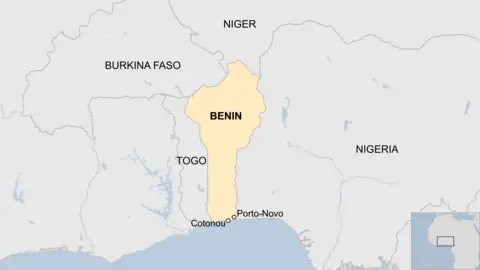
Benin, a former French colony, has been regarded as one of Africa’s more stable democracies. But Talon has faced accusations of suppressing criticism of his policies.
The nation is one of the continent’s largest cotton producers, but ranks among the world’s poorest countries.
Nigeria, Benin’s large neighbour to the east, has described the coup attempt as a “direct assault on democracy”.
“This commitment and mobilisation enabled us to defeat these opportunists and avert disaster for our country. This treachery will not go unpunished,” he added.
“I would like to reassure you that the situation is completely under control and therefore invite you to go about your business peacefully this evening.”
It is not clear if there have been casualties, but the president expressed his condolences “to the victims of this senseless adventure, as well as to those still being held by fleeing mutineers”.
Earlier, government spokesperson Wilfried Leandre Houngbedji told news agency Reuters that 14 people had been arrested in connection with the attempted coup.
A journalist in Benin told the BBC that, of those reportedly arrested, 12 are believed to have stormed the offices of the national TV station – including a soldier who had previously been sacked.
Eyewitnesses told the BBC gunfire was heard near the presidential residence early on Sunday morning, as a group of soldiers announced on national TV that they were suspending the constitution.
They also said some journalists working for the state broadcaster had been held hostage for a few hours.
The French and Russian embassies urged their citizens to remain indoors, while the US embassy’s advice was to stay away from Cotonou, especially the area around the presidential compound.
The rebel soldiers, led by Lt Col Pascal Tigri, justified their actions by criticising Talon’s management of the country, complaining first about his handling of the “continuing deterioration of the security situation in northern Benin”.
Benin’s army has suffered losses near its northern border with insurgency-hit Niger and Burkina Faso in recent years, as jihadist militants linked to Islamic State and al-Qaeda spread southwards.
The soldier’s statement cited “the ignorance and neglect of the situation of our brothers in arms who have fallen at the front and, above all, that of their families, abandoned to their sad fate by Mr Patrice Talon’s policies”.
The rebels also hit out at cuts in health care, including the cancellation of state-funded kidney dialysis, and taxes rises, as well as curbs on political activities.
Talon, who is regarded as a close ally of the West, is due to step down next year after completing his second term in office, with elections scheduled for April.
A businessman known as the “king of cotton”, he first came to power in 2016. He promised not to seek a third term, despite Benin’s current two-term limit for presidencies, and has endorsed Finance Minister Romuald Wadagni as his successor.
Talon has been praised by his supporters for overseeing economic development, but his government has also been criticised for suppressing dissenting voices.
In October, Benin’s electoral commission barred the main opposition candidate from standing on the grounds that he did not have enough sponsors.
Last month, constitutional amendments were passed by MPs, including the creation of a second parliamentary chamber, the Senate.
Terms for elected officials were extended from five to seven years, but the presidential two-term limit remained in place.
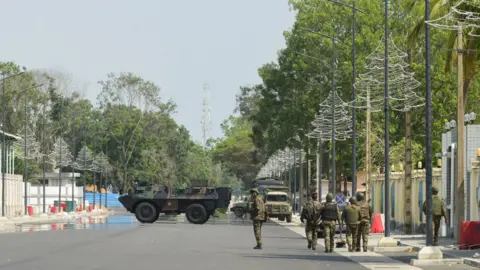
Sunday’s attempted coup comes just over a week after Guinea-Bissau’s President Umaro Sissoco Embaló was overthrown – though some regional figures have questioned whether this was staged.
In recent years, West Africa has also seen coups in Burkina Faso, Guinea, Mali and Niger, prompting concerns about the region’s stability.
Russia has strengthened its ties with these Sahel countries over recent years – and Burkina Faso, Mali and Niger have left the West African regional bloc Ecowas to form their own group, the Alliance of Sahel States.
News of the attempted takeover in Benin was hailed by several pro-Russian social media accounts, according to BBC Monitoring.
Ecowas and the African Union (AU) have both condemned the coup attempt.
A contingent from Ecowas’s standby force is to be deployed to preserve the “constitutional order and the territorial integrity of the Republic of Benin”, the regional bloc has said in a statement.
AU Commission chair Mahmoud Ali Yousouf reiterated the pan-African organisation’s “zero tolerance stance toward any unconstitutional change of government, regardless of context or justification”.
[BBC]
Foreign News
Deadly attack on kindergarten reported in Sudan

A drone attack on the town of Kalogi, in Sudan’s South Kordofan region, is said to have hit a kindergarten and killed at least 50 people, including 33 children.
The Rapid Support Forces (RSF), the paramilitary group battling the army in Sudan’s civil war, was accused of Thursday’s attack by a medical organisation, the Sudan Doctors’ Network, and the army.
There was no immediate comment from the RSF.
The RSF in turn accused the army of hitting a market on Friday in a drone attack in the Darfur region, on a fuel depot at the Adre border crossing with Chad.
Sudan has been ravaged by war since April 2023 when a power struggle broke out between the RSF and the army, who were formerly allies.
The reports could not be verified independently.
According to the army-aligned foreign ministry, the kindergarten was struck twice with missiles from drones.
Civilians and medics who rushed to the school were also attacked, it added.
Responding to reports of the attack in Kalogi, a spokesman for the UN children’s agency Unicef said: “Killing children in their school is a horrific violation of children’s rights.”
“Children should never pay the price of conflict,” Sheldon Yett added.
The agency, he said, urged “all parties to stop these attacks immediately and allow safe, unhindered access for humanitarian assistance to reach those in desperate need”.
The RSF accused the army of attacking the Adre crossing because it was used for the “delivery of aid and commercial supplies”.
According to the Sudan War Monitor, a group of researchers tracking the conflict, the attack caused civilian casualties and significant damage to a market.
The military did not immediately comment on the reports from Darfur.
Wedged between Sudan’s capital Khartoum and Darfur, the region made up of North Kordofan, South Kordofan and West Kordofan has been a frontline in the civil war.
The battle for the Kordofans – which have a population of almost eight million – has intensified as the army pushes towards Darfur.
[BBC]
-
News6 days ago
Lunuwila tragedy not caused by those videoing Bell 212: SLAF
-

 News17 hours ago
News17 hours agoOver 35,000 drug offenders nabbed in 36 days
-

 News5 days ago
News5 days agoLevel III landslide early warning continue to be in force in the districts of Kandy, Kegalle, Kurunegala and Matale
-

 Latest News7 days ago
Latest News7 days agoLevel III landslide early warnings issued to the districts of Badulla, Kandy, Kegalle, Kurunegala, Matale and Nuwara-Eliya
-

 Features7 days ago
Features7 days agoDitwah: An unusual cyclone
-

 Business3 days ago
Business3 days agoLOLC Finance Factoring powers business growth
-

 News3 days ago
News3 days agoCPC delegation meets JVP for talks on disaster response
-

 News3 days ago
News3 days agoA 6th Year Accolade: The Eternal Opulence of My Fair Lady


